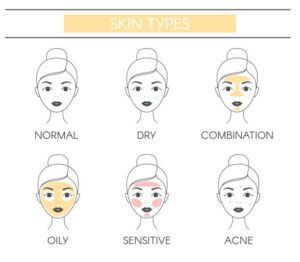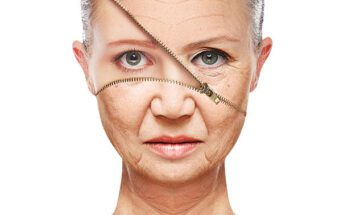Skin care is a science and an art that anybody can learn. Understanding your skin is essential to care for it because it enables you to choose the right products that are effective for you and treat any existing problems without causing new ones. By taking the time to know your skin type and special needs, you may make the right decisions that will balance your skin and provide you a healthier, more beautiful complexion. Although every person has a unique type of skin, you may use the following descriptions of typical skin types to determine which category your skin falls into. The three main types of skin are oily, combination, and dry.
 (Photo from istock)
(Photo from istock)
Here are two simple ways to know your skin type:
-
The Blotting Paper Method:
This technique is quicker and often successful in differentiating between dry and oily skin types. Use blotting paper to gently clean the various parts of your face. To measure the amount of oil that is visible, hold the sheet up to the light. Your skin is probably dry if the sheet only absorbed very little or no oil. Your skin is mixed if the blotting sheet displays oil on your forehead and nose. Finally, if the blotting paper is completely soaked with oil, you undoubtedly have oily skin.
-
Wash and Wait:
You may determine your skin type using this method simply by monitoring how your skin responds to washing. Use a soft cleanser to wash your face, and then gently pat it dry. After 30 minutes, oily skin should seem glossy all over, whereas dry skin should appear tight, flaky, or scaly. Normal skin should feel comfortable and moisturized but not greasy, whereas combination skin should only seem shiny in the T-Zone, which includes the area around your nose and forehead.
 (Photo from istock)
(Photo from istock)
Some other Skin Types:
-
Acne- Prone Skin Type:
You most likely have acne-prone skin if you get regular breakouts of acne (or ones that just won’t go away). You are therefore more prone to whiteheads, blackheads, and pimples than those with other skin types since your pores have a tendency to clog quickly. Acne may affect people with both dry and oily skin types.
-
Sensitive Skin Type:
The word sensitive itself is enough to tell that skin type which is prone to irritation and rashes more frequently than others is sensitive skin type. Environmental factors, allergies, or heredity may all contribute to sensitive skin.
-
Mature Skin Type:
The signs are fairly common, even though not everyone’s skin ages at the same speed. You might start to notice a few wrinkles or more dryness than you did when you were younger. Saggy skin, dark spots, dullness, and dehydration are possible signs of older skin.
Any skin type can be sensitive or prone to acne outbreaks; however people with normal skin are less likely to suffer both. But with the correct products, you can take care of your skin while treating problems like sensitivity or acne scars. Hence, it is essential to know your skin type.
References:





5 Comments on “How to Know your Skin type at home”